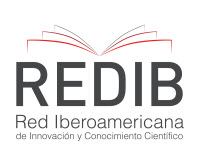De leões sem garras e homens eruditos: visões do masculino em Lésbia (1890), de Maria Benedita Câmara Bormann (Délia)
DOI:
https://doi.org/10.14393/ArtC-V19n34-2017-1-13Resumo
O artigo se propõe analisar a construção das masculinidades no romance Lésbia (1890), de Délia, pseudônimo literário de Maria Benedita Câmara Bormann (1853-1895). A trama narra a formação e a trajetória ficcional de uma romancista brasileira, por meio da qual a autora delata os estigmas sociais que recaem sobre as mulheres, sobretudo das classes médias, que anseiam pela inserção em carreiras profissionais no fin-de-siècle brasileiro. A multiplicidade de perfis masculinos delineados na narrativa possibilita a reflexão a respeito do modo como Bormann problematiza a construção dos modelos predominantes de virilidade na passagem para o período republicano no Brasil oitocentista, bem como seus impactos sobre as hierarquias e contrastes de gênero. Por um lado, indica as apropriações críticas de elementos do naturalismo no escrutínio de perfis de masculinidade compreendidos pela romancista como vaidosos e mesquinhos, violentos e irresponsáveis; por outro, sugere a possibilidade de outras vivências do masculino, demarcados pela erudição e sensibilidade, capazes de cultivar relações menos verticalizadas com mulheres, baseadas na paixão e na valorização do intelecto.
Palavras-chave: História e Literatura; Maria Benedita Câmara Bormann; Lésbia.
Downloads
Downloads
Publicado
Edição
Seção
Licença
Autores que publicam nesta revista concordam com os seguintes termos da licença Creative Commons, adotada a partir da ArtCultura, v. 21, n. 39 (jul.-dez. 2019).
CC BY-NC-ND 4.0: o artigo pode ser copiado e redistribuído em qualquer suporte ou formato. Os créditos devem ser dados ao autor original e mudanças no texto devem ser indicadas. O artigo não pode ser usado para fins comerciais. Caso o artigo seja remixado, transformado ou algo novo for criado a partir dele, ele não pode ser distribuído.
Autores têm autorização para assumir contratos adicionais separadamente, para distribuição não exclusiva da versão do trabalho publicada nesta revista (ex.: publicar em repositório institucional ou como capítulo de livro), com reconhecimento de autoria e publicação inicial nesta revista.












